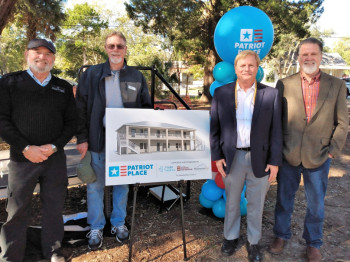Trending Multifamily News
RealPage, Inc., a leading global provider of software and data analytics to the real estate industry, today announced it has entered into a definitive agreement to be acquired by Thoma Bravo, a leading private equity investment firm focused on the software and technology-enabled services sector, in an all-cash transaction that values RealPage at approximately $10.2 billion, including net debt.
Under the terms of the agreement, RealPage stockholders will receive $88.75 in cash per share of RealPage common stock upon closing of the transaction. The purchase price represents a premium of 30.8% over RealPage’s closing stock price of $67.83 on December 18, 2020, a premium of 36.5% over RealPage’s 30-day volume-weighted average share price through that date, and a premium of 27.8% over RealPage’s all-time high closing stock price of $69.47 on December 7, 2020. The RealPage Board of Directors has unanimously approved the agreement with Thoma Bravo and recommends that RealPage stockholders vote in favor of the transaction at the special meeting of RealPage stockholders to be called in connection with the transaction.
Upon completion of the transaction, RealPage expects to continue operating under the leadership of Chairman and CEO Steve Winn and the existing RealPage leadership team based in Richardson, Texas.
“We believe this transaction will provide immediate and substantial value to RealPage stockholders, reflecting the tremendous work that our employees have done to build this company. I am immensely proud of that work and also pleased that the transaction will provide us the opportunity to work with Thoma Bravo, a firm with tremendous software investment and operational capabilities. This will enhance our ability to focus on executing our long-term strategy and delivering even better products and services to our clients and partners,” commented Steve Winn, Chairman of the Board and Chief Executive Officer of RealPage.
“RealPage’s industry leading platform is critical to the real estate ecosystem and has tremendous potential going forward,” said Orlando Bravo, Founder and a Managing Partner of Thoma Bravo. “Our firm has a track record of acquiring cutting edge software providers to specialized industries and driving their innovation and growth while remaining true to their core business and customers. Together, RealPage and Thoma Bravo can partner to grow the company’s market offerings and enhance its current capabilities to capitalize on the increasingly complex and expanding real estate market.”
“We are thrilled to partner with Steve and the RealPage team at this exciting milestone in the company’s journey,” said Scott Crabill, a Managing Partner at Thoma Bravo. “As technology transformation takes on increasing importance in the real estate industry, RealPage’s diverse and innovative portfolio of products and solutions puts the company in prime position to accelerate its market leadership. We look forward to applying Thoma Bravo’s operational and investment expertise in software to help drive RealPage’s continued growth and identify attractive M&A opportunities.”
Transaction Details
Closing of the transaction is subject to customary conditions, including approval by the holders of a majority of the outstanding shares of RealPage common stock, expiration or early termination of the applicable waiting period under the Hart-Scott-Rodino Antitrust Improvements Act of 1976, and receipt of other required regulatory approvals. A special meeting of RealPage stockholders will be held in early 2021, following the filing of a definitive proxy statement with the U.S. Securities and Exchange Commission. Mr. Winn and certain affiliated entities, which collectively own approximately 10% of the outstanding shares of RealPage common stock, have entered into a voting agreement with Thoma Bravo pursuant to which they have agreed, among other things, to vote their shares of RealPage common stock in favor of the merger, and against any competing transaction, so long as, among other things, the RealPage Board of Directors continues to recommend that RealPage stockholders vote in favor of the merger.
Consistent with the Board’s commitment to maximizing stockholder value, under the terms of the definitive merger agreement, RealPage’s Board of Directors and advisors may actively initiate, solicit and consider alternative acquisition proposals during a 45-day “go shop” period. RealPage has the right to terminate the merger agreement to accept a superior proposal during the go-shop period, subject to the terms and conditions of the merger agreement. There can be no assurances that this process will result in a superior proposal, and RealPage does not intend to disclose developments with respect to this solicitation process unless and until RealPage’s Board of Directors makes a determination requiring further disclosure.
The parties expect the transaction to close in the second quarter of 2021. Upon completion of the transaction, RealPage will become a privately held company, and its common stock will no longer be listed on the NASDAQ stock market.
BofA Securities is acting as financial advisor to RealPage, and Wachtell, Lipton, Rosen & Katz is acting as its legal counsel. Financing for the transaction is being provided by Goldman Sachs & Co. LLC. Goldman Sachs & Co. LLC is also serving as financial advisor to Thoma Bravo, and Kirkland & Ellis LLP is serving as its legal counsel.
|
Payment level represents a payment rate of 98.1 percent compared to May 1-6, 2019 |
|
The NMHC Rent Payment Tracker is powered by Entrata, MRI Software, RealPage, ResMan and Yardi |
|
The National Multifamily Housing Council (NMHC)’s Rent Payment Tracker found 80.2 percent of apartment households made a full or partial rent payment by May 6 in its survey of 11.4 million units of professionally managed apartment units across the country.
This is a 1.5-percentage point decrease in the share who paid rent through May 6, 2019 and
“Despite the fact that over twenty million people lost their jobs in April, for the second month in a row, we are seeing evidence that apartment renters who can pay rent are stepping up and doing so,” said Doug Bibby, NMHC President. “We expect May to largely mirror April, when the payment rate increased throughout the month as financial assistance worked its way to people’s bank accounts.”
“However, we are in uncharted waters and will be watching this closely over the course of the month as millions of households will not be able to access unemployment benefits, and those who have may find that they are not enough to cover rent plus all the other financial pressures caused by this crisis,” said Bibby. “Those benefits will also likely fall short in high-cost areas. That’s why we are calling on Congress to include $100 billion in direct renter assistance in the next pandemic relief package.”
“When millions of renters found themselves sheltering in place at their apartment home, apartment firms made it a priority to help them retain their housing,” said David Schwartz, NMHC Chair, and CEO and Chairman of Chicago-based Waterton. “NMHC called on apartment firms to halt evictions for residents impacted by COVID-19, waive late fees and create payment plans for them and also avoid rent increases for 90 days to help residents weather the crisis. Many took up that call, and others went even further to help their residents. However, we can’t do it alone. We need Congress to help.”
“The cascading effect of any rent gap is meaningful,” said Bibby. “Apartment owners have $1.6 trillion in outstanding mortgage debt. If they can’t cover their debt, we might see a wave of multifamily foreclosures that could rival the single-family foreclosures that occurred during the Great Recession. In addition, apartment owners pay $58 billion in property taxes that help support essential services such as schools, emergency services and other important local needs.”
This survey is one of a number of NMHC-produced resources focused on the COVID-19 outbreak.
Additional resources, data and materials can be found here. |











